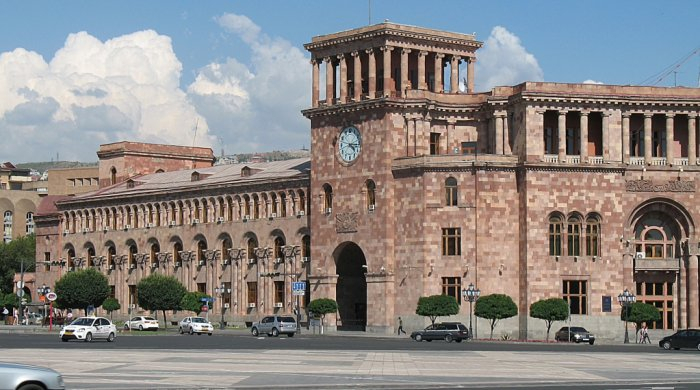"He is not a private soldier, but a serviceman," the prosecutor general said. “One criminal case on the fact of treason has already been completed and sent to the court.”
“It is too early to assess the impact each individual case had on the final outcome of the war [the Armenia-Azerbaijan Nagorno-Karabakh war],” the Armenian prosecutor general said.
Following over a month of military action to liberate its territories from Armenian occupation from late Sept. to early Nov. 2020, Azerbaijan has pushed Armenia to sign the surrender document. A joint statement on the matter was made by the Azerbaijani president, Armenia's PM, and the president of Russia.
A complete ceasefire and a cessation of all hostilities in the zone of the Nagorno-Karabakh conflict was introduced on Nov. 10, 2020.
Armenian Armed Forces launched a large-scale military attack on positions of the Azerbaijani army on the front line, using large-caliber weapons, mortars, and artillery on Sept. 27. Azerbaijan responded with a counter-offensive along the entire front.
Back in July 2020, the Armenian Armed Forces violated the ceasefire in the direction of Azerbaijan's Tovuz district. As a result of Azerbaijan's retaliation, the opposing forces were silenced. The fighting continued the following days. Azerbaijan lost a number of military personnel members, who died fighting off the attacks of the Armenian Armed Forces.
The conflict between the two South Caucasus countries began in 1988 when Armenia made territorial claims against Azerbaijan. As a result of the ensuing war, the Armenian Armed Forces occupied 20 percent of Azerbaijan, including the Nagorno-Karabakh region and seven surrounding districts. The 1994 ceasefire agreement was followed by peace negotiations.
More about: #Yerevan
















































